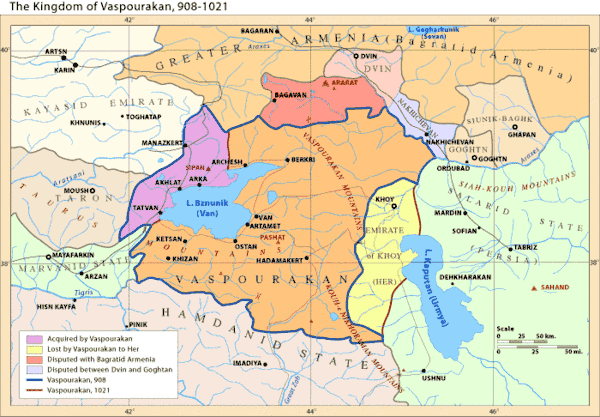1021
Year 1021 (MXXI) was a common year starting on Sunday (link will display the full calendar) of the Julian calendar.
| Millennium: | 2nd millennium |
|---|---|
| Centuries: | |
| Decades: | |
| Years: |
| 1021 by topic |
|---|
| Leaders |
|
| Birth and death categories |
| Births – Deaths |
| Establishments and disestablishments categories |
| Establishments – Disestablishments |
| Gregorian calendar | 1021 MXXI |
| Ab urbe condita | 1774 |
| Armenian calendar | 470 ԹՎ ՆՀ |
| Assyrian calendar | 5771 |
| Balinese saka calendar | 942–943 |
| Bengali calendar | 428 |
| Berber calendar | 1971 |
| English Regnal year | N/A |
| Buddhist calendar | 1565 |
| Burmese calendar | 383 |
| Byzantine calendar | 6529–6530 |
| Chinese calendar | 庚申年 (Metal Monkey) 3717 or 3657 — to — 辛酉年 (Metal Rooster) 3718 or 3658 |
| Coptic calendar | 737–738 |
| Discordian calendar | 2187 |
| Ethiopian calendar | 1013–1014 |
| Hebrew calendar | 4781–4782 |
| Hindu calendars | |
| - Vikram Samvat | 1077–1078 |
| - Shaka Samvat | 942–943 |
| - Kali Yuga | 4121–4122 |
| Holocene calendar | 11021 |
| Igbo calendar | 21–22 |
| Iranian calendar | 399–400 |
| Islamic calendar | 411–412 |
| Japanese calendar | Kannin 5 / Jian 1 (治安元年) |
| Javanese calendar | 923–924 |
| Julian calendar | 1021 MXXI |
| Korean calendar | 3354 |
| Minguo calendar | 891 before ROC 民前891年 |
| Nanakshahi calendar | −447 |
| Seleucid era | 1332/1333 AG |
| Thai solar calendar | 1563–1564 |
| Tibetan calendar | 阳金猴年 (male Iron-Monkey) 1147 or 766 or −6 — to — 阴金鸡年 (female Iron-Rooster) 1148 or 767 or −5 |
| Wikimedia Commons has media related to 1021. |

The Kingdom of Vaspurakan (908–1021)
Events
By place
Europe
- November – Emperor Henry II conducts his fourth Italian military campaign. He crosses the Brenner Pass with a 60,000-strong army, and reaches Verona, where he receives Lombard levies. Henry proceeds to Mantua and then into Ravenna, to spend Christmas there.
- The Taifa of Valencia, a Moorish kingdom in Al-Andalus (modern Spain), becomes independent from the Caliphate of Córdoba (approximate date).
Africa
- Last evidence of indigenous Christian and non-Arabophone culture in Tripolitania (modern Libya).[1]
Asia
- Senekerim-Hovhannes Artsruni, king of Vaspurakan (Greater Armenia), surrenders his kingdom to the Byzantine Empire. He receives in return Sebasteia and becomes governor of Cappadocia.[2]
- Hovhannes-Smbat III, King of the Armenian kingdom of Ani was attacked by his younger brother Ashot IV, and lost much of his power to him, becoming concurrent king of outlying territories.
- The Chinese capital city of Kaifeng has some half a million residents by this year; including all those present in the nine designated suburbs, the population is over a million people.
- Emperor Rajendra Chola I extends his influence of the Chola Empire to the banks of the Ganges River (North India) and invades Bengal.
- Sultan Mahmud of Ghazni appoints Malik Ayaz to the throne, making Lahore (modern Pakistan) the capital of the Ghaznavid Empire.
Births
- December 8 – Wang Anshi, Chinese chancellor (d. 1086)
- Eudokia Makrembolitissa, Byzantine empress (d. 1096)
- Fujiwara no Kanshi, Japanese empress consort (d. 1102)
- Wugunai, Chinese chieftain of the Wanyan tribe (d. 1074)
Deaths
- February 13 – Al-Hakim bi-Amr Allah, Fatimid caliph (b. 985)
- March 16 – Heribert, archbishop of Cologne (b. c. 970)
- July 7 – Fujiwara no Akimitsu, Japanese bureaucrat (b. 944)
- August 17 – Erkanbald, German abbot and archbishop
- August 29 – Minamoto no Yorimitsu, Japanese nobleman (b. 948)
- Arnulf, French archbishop and illegitimate son of Lothair III
- Fujiwara no Yoshikane, Japanese nobleman (b. 957)
- Hamid al-Din al-Kirmani, Fatimid scholar and philosopher
- Hamza ibn 'Ali ibn-Ahmad, founding leader of the Druze
- Liu Mei, Chinese official and general (approximate date)
- Mac Cú Ceanain, king of Uí Díarmata (Ireland)
- Shams al-Dawla, Buyid emir of Hamadan (Iran)
- Trilochanapala, king of the Kabul Shani Dynasty
gollark: Until they randomly cancel them.
gollark: I think that's it. The manufacturers generally just shove on an unremovable Facebook application, a weird store app nobody uses and some useless styling.
gollark: I have MuPDF since I occasionally need to... read PDFs.
gollark: Or PDF viewer.
gollark: There's also not a file manager by default *either*, I think.
References
- Bresc, Henri (2003). "La Sicile et l'espace libyen au Moyen Age" (PDF). Parte prima. Il regno normanno e il Mediterraneo. Retrieved January 17, 2012.
- Hewsen, Robert H. (2001). Armenia: A Historical Atlas. The University of Chicago Press. p. 126. ISBN 0-226-33228-4.
This article is issued from Wikipedia. The text is licensed under Creative Commons - Attribution - Sharealike. Additional terms may apply for the media files.